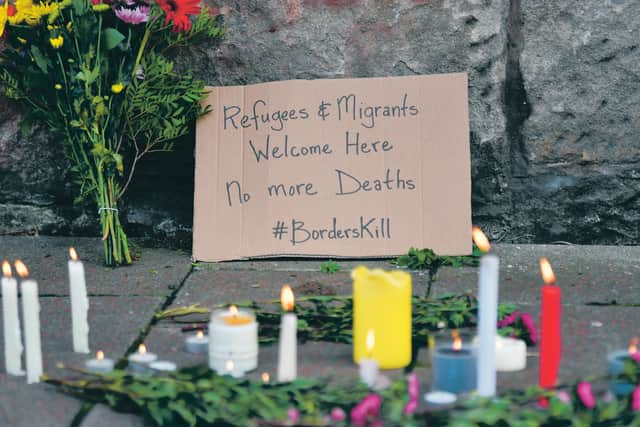Dani Garavelli: Distortion of Mercy’s plight is good reason for reflection


But it also provoked more problematic soul-searching about the way we respond to stories like Mercy’s; how we like our tragedies to fit a certain template; and whether – inadvertently – those of us who abhor the government’s hostile environment policies are sometimes reductive in our opposition.
Like the death of Alun Kurdi – the refugee whose tiny body was washed up on a Turkish beach five years ago – Mercy’s plight touched the rawest of nerves, provoking public outrage. And why wouldn’t it?
Advertisement
Hide AdAdvertisement
Hide AdMercy – we were told – died in destitution with a starving baby by her side. Her leave to remain having expired, she was forced to give up her job at the city’s Calabash restaurant, and had been surviving on hand-outs from friends and charitable organisations.


What a dreadful indictment of the UK government which cares so little for the fate of migrants it spent last week trying to deport 23 desperate souls who had risked their lives to cross the Channel in tiny, packed boats.
A crowdfunder was set up, and, within days, raised tens of thousands of pounds to cover the cost of Mercy’s funeral and provide for her child – evidence that many ordinary people care so much, they will give and give and give, even when that giving is, frankly, too knee-jerk and too late. But a display of generosity is a means of expressing horror, regret and vicarious shame, and no-one should be criticised for that.
All the same, the treatment of Mercy – by charities and journalists (including me) – gradually began to make me uncomfortable. It felt as if there was – amongst those of us who hope for, push for change – a temptation to hijack this 34-year-old’s fate to our own agenda; to weaponise it against the forces of xenophobia and hate.
We all know some stories – some people – are more likely to attract public sympathy than others. And Mercy had it all – the youth, the vitality, the baby. While male asylum seekers are often stigmatised as “at it”, this is less true of young mothers fending for their children.
And opposing the current system is a priority. It’s a system designed to strip people of dignity. A system that forces those who have fled persecution to tell their stories over and over again. A system that denies asylum seekers the right to contribute to society, then treats them as pariahs.
Mercy is not the first migrant – even in Glasgow – to find herself “overwhelmed” by privations which have been exacerbated by lockdown. In May, Adnan Elbi, from Syria, was found dead in one of the city centre hostels into which hundreds of asylum seekers were decanted at the start of the pandemic. He is understood to have been suffering from depression.
In June, Badreddin Abadlla Adam, from Sudan, who had been suffering from mental health problems, stabbed six people before being fatally shot by the police.
Advertisement
Hide Ad